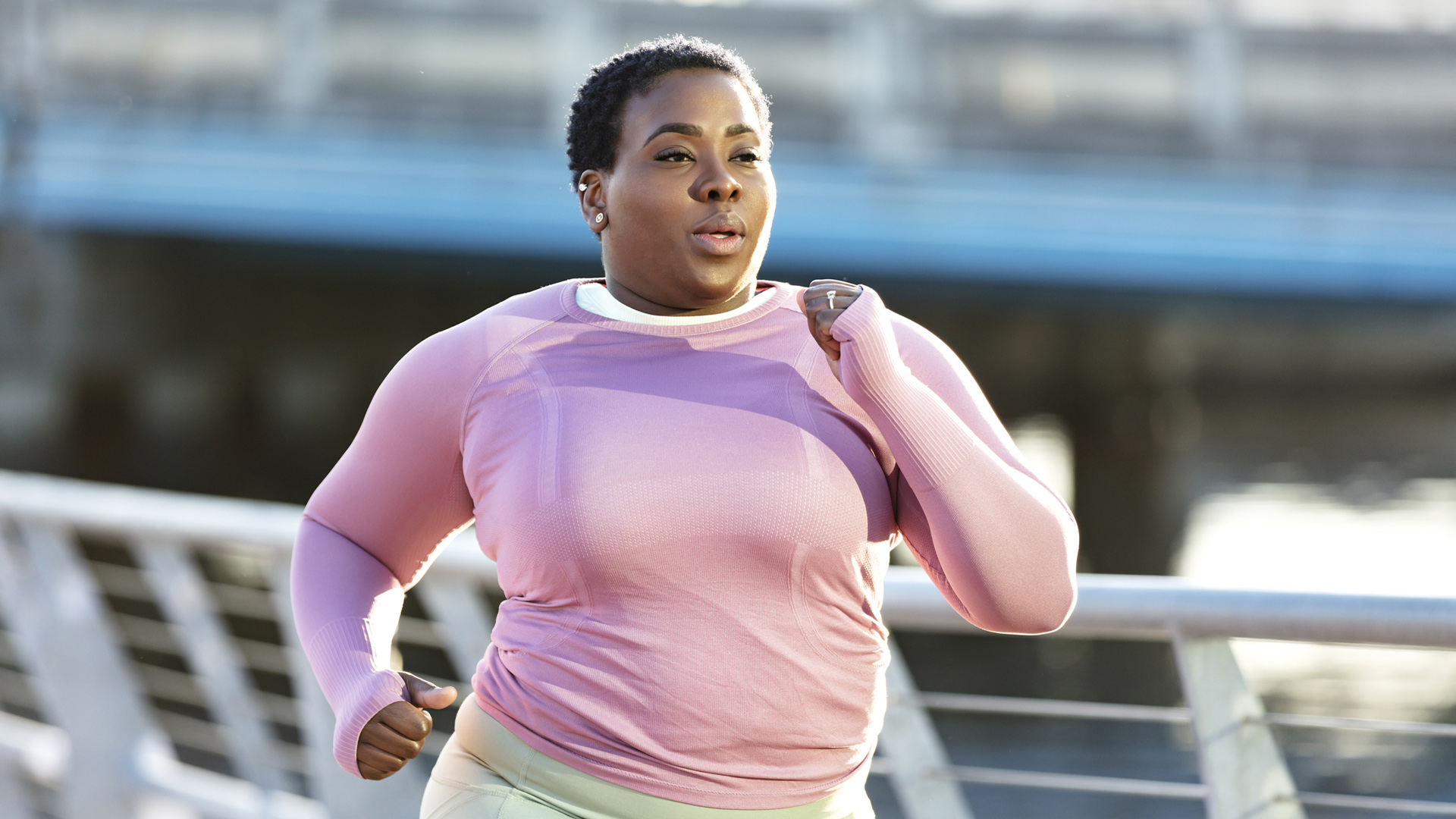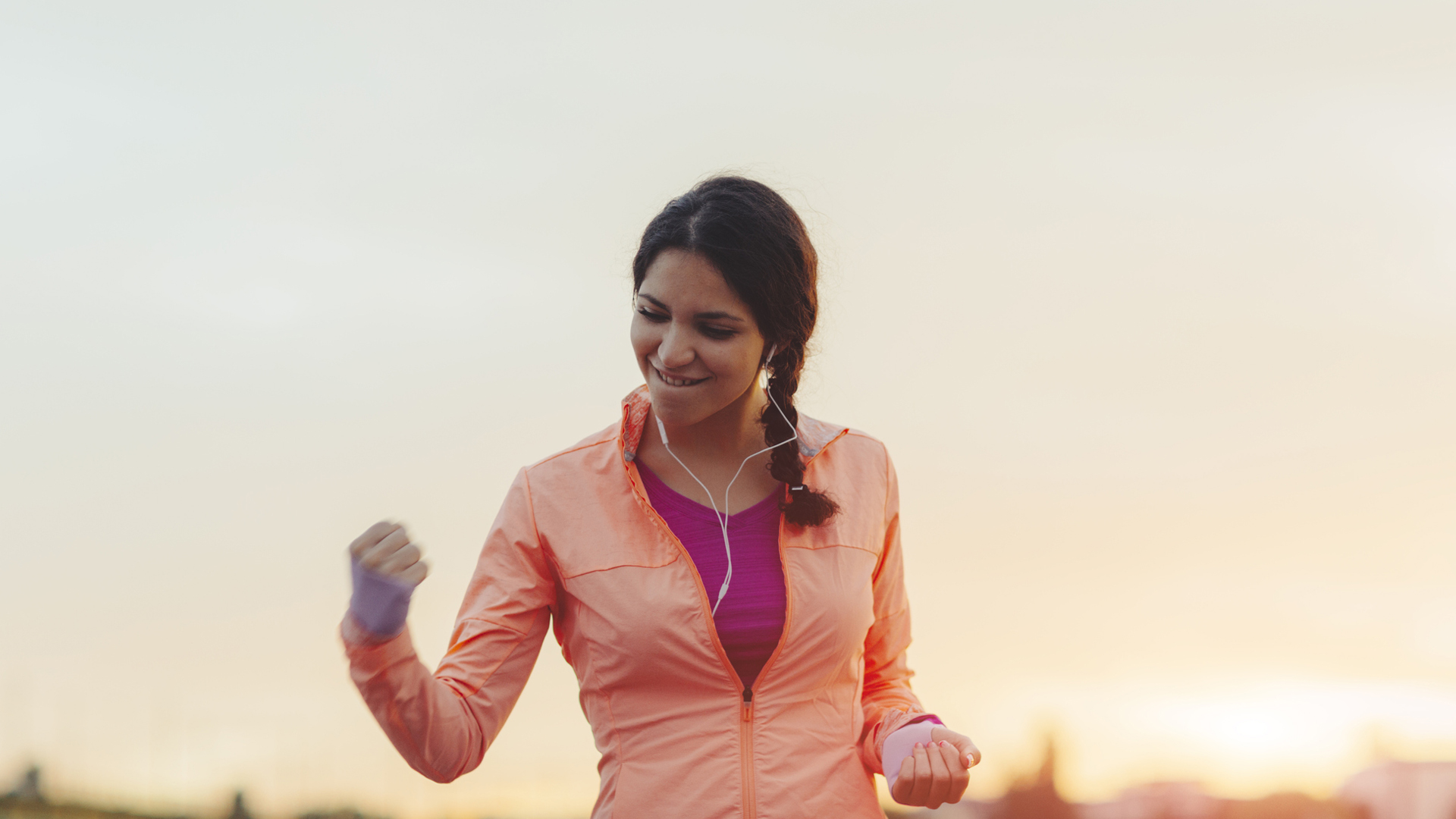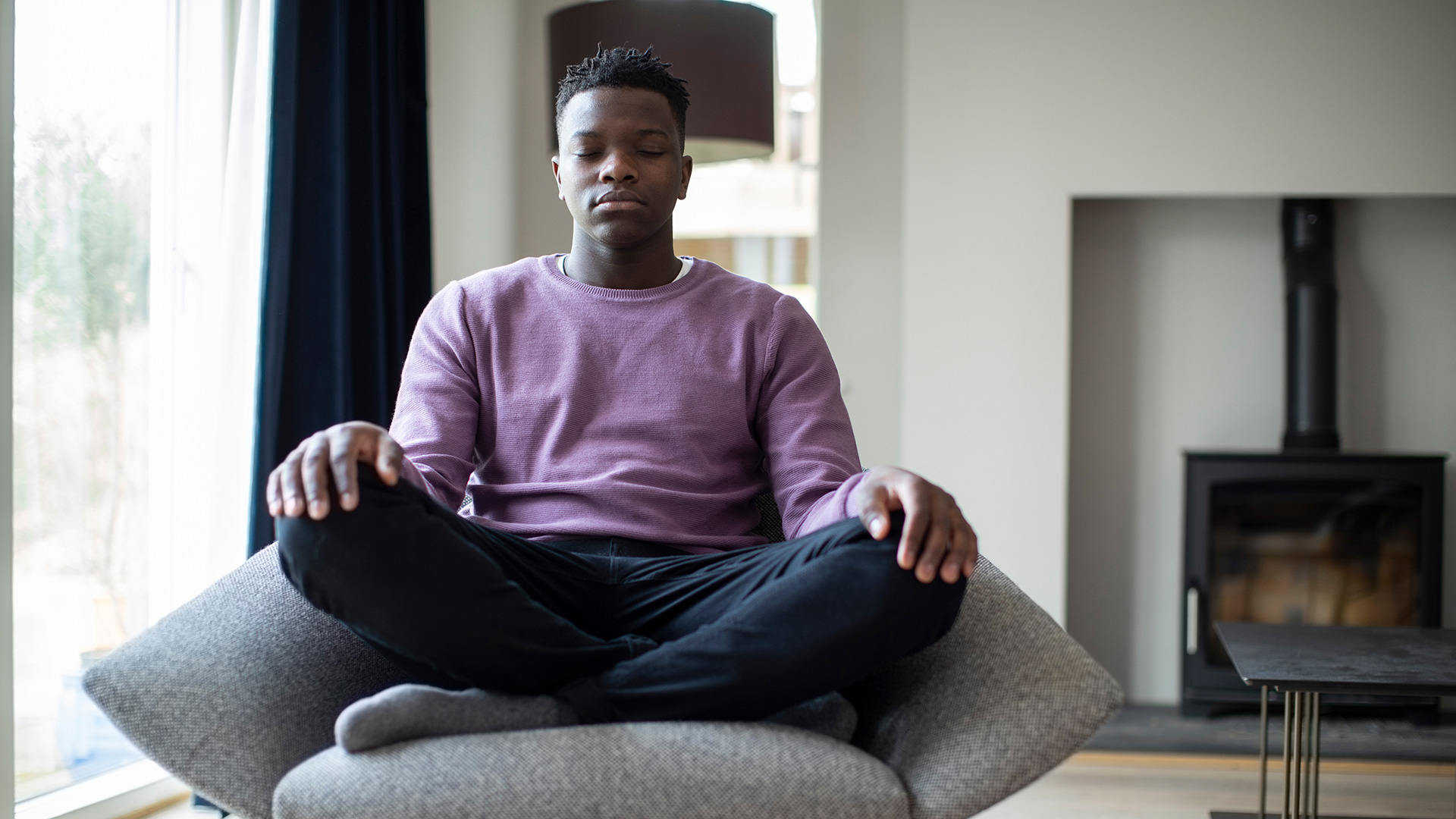What does running do to your body?
We give you 5 reasons why running is the ultimate medicine (and discuss the potential drawbacks)


Get all the latest news, reviews, deals and buying guides on gorgeous tech, home and active products from the T3 experts
You are now subscribed
Your newsletter sign-up was successful
You'd be an instant billionaire if you could bottle the positive effects of running on your body and sell it. There are so many fantastic physical and mental side effects to running, the wonder drug, but be careful; it's easy to get addicted to the runner's high!
At the moment, there is no pill-based version, so to experience the benefits of running on your body, you'll have to lace up running shoes, don your running watch, plug in your running headphones and head out for a quick jog or run.
But before you do that, read this list of benefits that will have you leaving work early, skipping that Netflix binge and reaching for your running kit.
1. Reduces risk of death
A biggie, huh? Unless, of course, you opt for a quick jog along the M6, running even for just a few minutes, even at slow speeds, has been scientifically proven to reduce your risk of meeting the Grim Reaper any earlier than necessary.
A study in the Journal of the American College of Cardiology looked at over 55,000 adults over 15 years to conclude that runners had a 30% lower risk of death from all causes and a 45% lower risk of dying from heart disease or stroke. If that’s not a big incentive to start running immediately, we don’t know what is.

2. Hones a hot bod
“Well hello beach body,” - by working your legs, heart and lungs, running improves your muscle tone, bone density, joint strength, circulation and helps you maintain a healthy weight.
For best results – according to the UK's NHS – combine running with a healthy diet, run three times a week with a rest day after each run, and if you’re a complete beginner to exercise start off with their Couch to 5k app for advice and motivation.
Get all the latest news, reviews, deals and buying guides on gorgeous tech, home and active products from the T3 experts
It’s also worth including a 5-minute strength workout after each run (like squats, lunges and planks) to increase your running economy and performance according to research in the Journal of Strength and Conditioning Research.
3. Boosts sexual performance
Running (along with other cardiovascular activities like cycling and swimming) can improve men’s erections and improve women’s arousal and orgasm satisfaction according to a 2019 study of over 6,000 over 40-year-olds by the University of California. It’s thought that improved circulation and the reduction of multiple causes of erectile dysfunction like high blood pressure, obesity and Type 2 diabetes help in this.
Running can also increase your sex drive by releasing endorphins, reducing stress, tiredness, lack of confidence and low self-esteem and encouraging healthy regard for your body and its amazing abilities. Running (without overdoing it of course) can also help with fertility for both men and women by reducing stress, obesity and promoting a healthy lifestyle.

4. Improves your snooze
Sleep is also something we could do with bottling, especially parents!
The National Sleep Foundation’s recommended 7-9 hours of shut-eye is when your body repairs your muscles, your mind and everything in between, so isn’t it fantastic that regular running not only speeds up your journey into dreamland but also improves the quality of sleep once you drop off?
Researchers from the University of Loughborough found that running and other physical activities for over 150 mins per week (for example 3 x 30 mins runs) help to manage insomnia and improve sleep quality.
Was there one more thing?
Forget the coffee – if you’re worried you’re not getting that magic 8 hours of sleep is affecting your brain power, running might be your saviour. New research from the American College of Sports Medicine has found that exercise can optimise the brain for better, more efficient memory processing.
Better still, the scientists involved with this study also explore whether exercise like running can counteract the forgetfulness of sleep deprivation by protecting neuroplasticity.

5. Running reduces anxiety
Countless books have been written by people who have discovered running and firmly believed it saved their life by improving their mental health immeasurably - and it’s true. Scientists have long known that exercise significantly reduces anxiety and depression - even three 30 minute sessions a week will combat these symptoms.
Researchers in the journal Physiotherapy Theory and Practice reported participants’ feelings of contentment, peace, happiness, resilience and an escape or freedom from everyday worries.
The downsides
Yes, running is clearly great for our bodies, but there are a few downsides that we mustn’t gloss over. The first is the risk of injury; have you heard of a runner who has never been injured with a muscle strain or overuse problem?
That’s one of the problems with running - you can get addicted and do too much too soon. To reduce the likelihood of injury, you must listen to your body, only increase intensity and distance gradually (no more than 10% per week), do regular strength work (see above) and cross-training like cycling, swimming, brisk walking and anything else that gets your heart pumping.
Other types of injury include blisters and chafing, which can be solved easily by choosing well-fitting footwear and clothing and thoroughly testing the kit out before running a long way in it.
Finally, sometimes running can, er, how shall we say it, encourage your digestive system to spring into action? If you find yourself prone to tummy troubles mid-run, experiment with when and what you eat beforehand, plan routes around loo stops (or bushes!) and make sure you’re always well hydrated.

Claire Maxted is the co-founder and former editor of Trail Running magazine and the author of The Ultimate Trail Running Handbook. She currently runs the YouTube channel Wild Ginger Trail & Ultra Running, creating films packed with trail and ultra running advice, athlete interviews, gear tests and race recces. She hosts talks and awards and speaks at events and races.